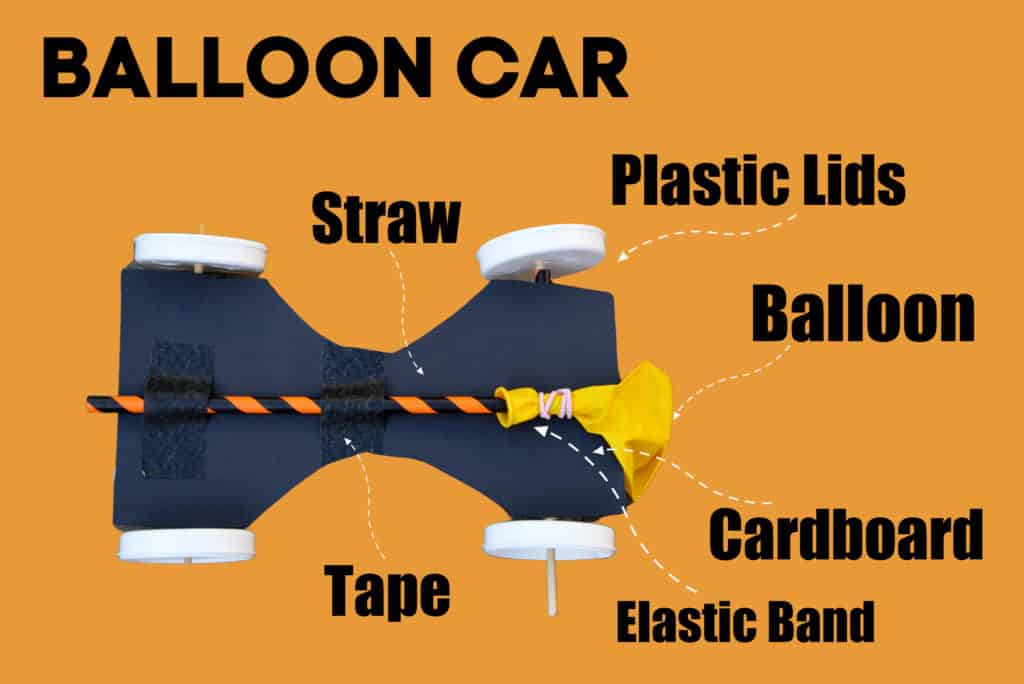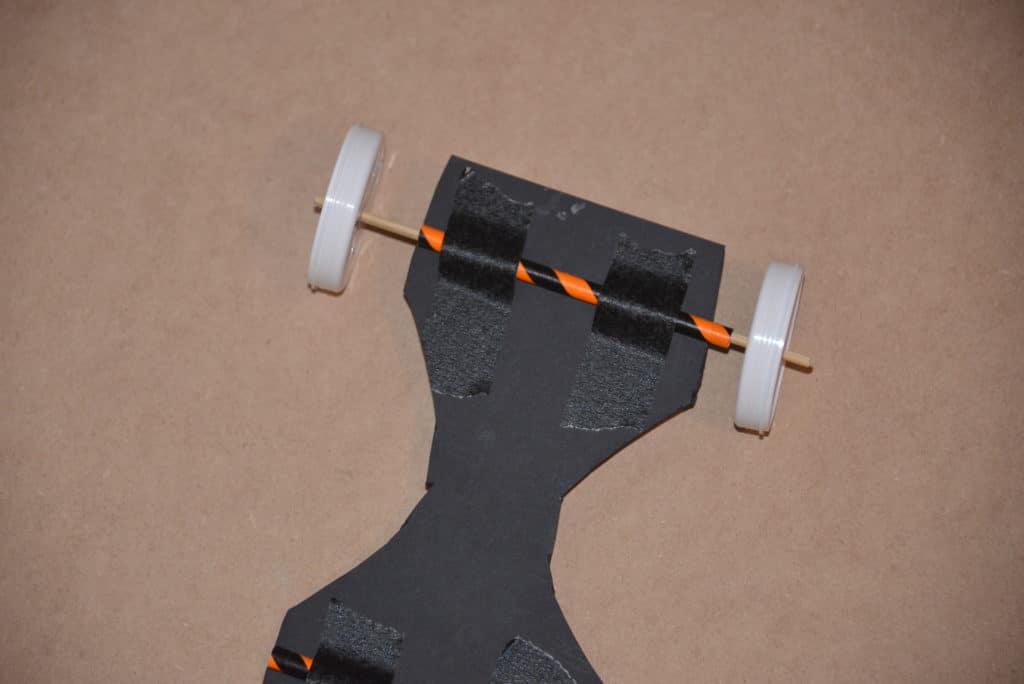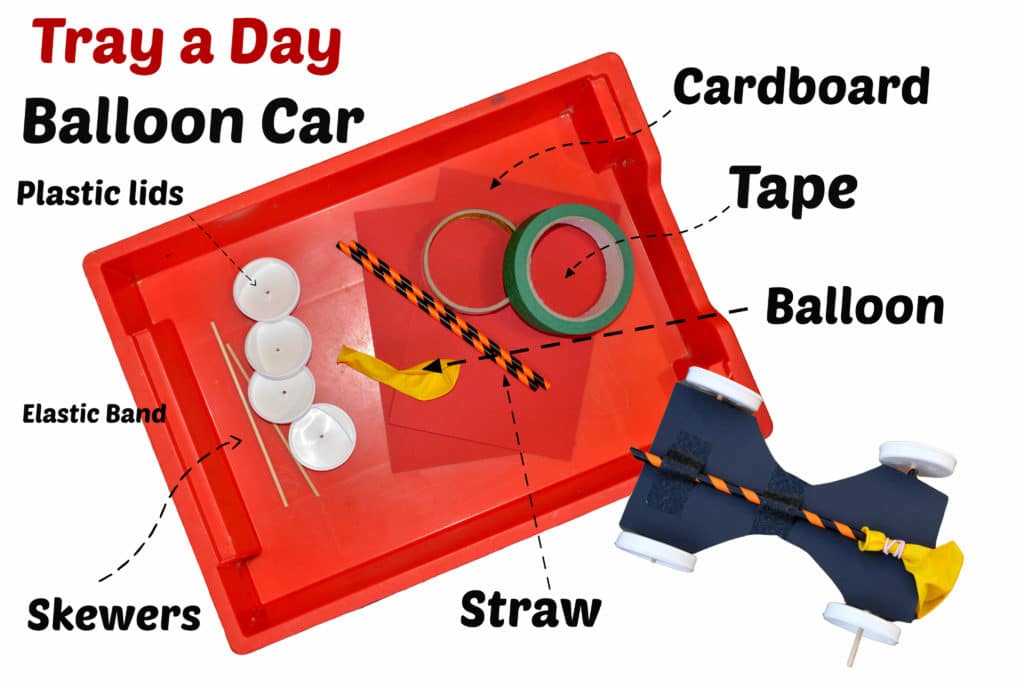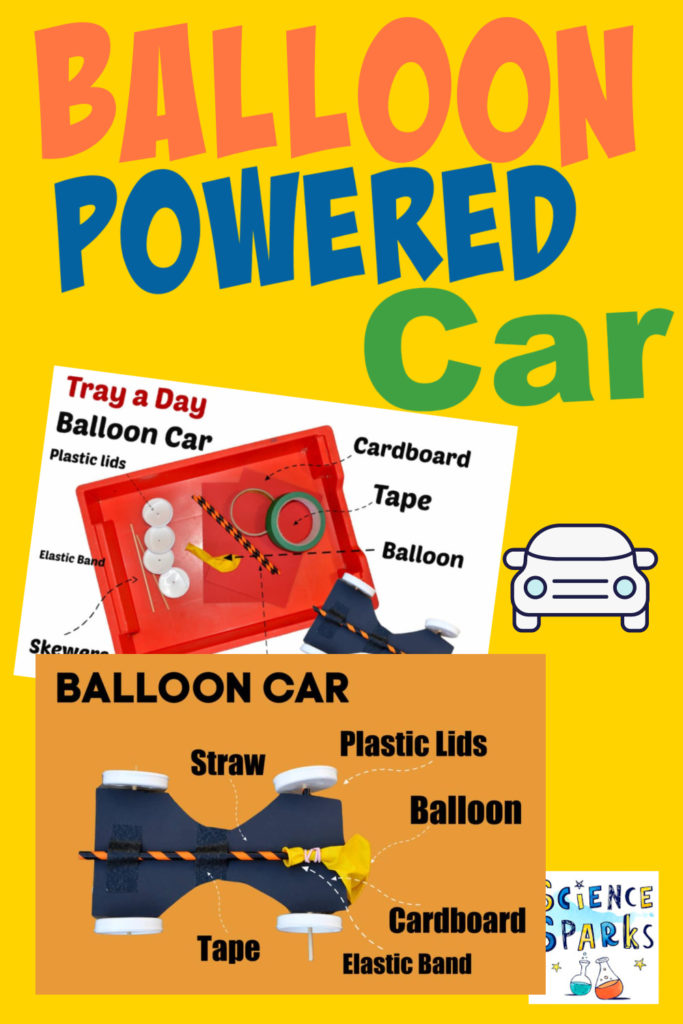I’ll be honest and say balloon powered cars can be very frustrating to make, but I have some top tips to help!
If you don’t have everything you need you can also make a LEGO balloon powered car, just make sure it’s as light as possible. The weight of the car is the most important factor. It needs to be VERY light.

Balloon Car Top Tips
- Make the car as light as you can. You can see that I’ve cut out some of the cardboard on the sides to reduce the weight of mine.
- The end of the straw you blow down should sit just over the edge of the car.
- The balloon should also rest on the car ( not the floor ) when blown up.
What you need to build a balloon powered car
Thin cardboard
Tape
4 plastic lids
1 balloon
2 skewers
Elastic band
Straws
Instructions
Carefully attach each skewer to one plastic lid to make a wheel and axle. Our lids were soft enough to pierce the plastic easily, but if not you’ll need to glue them in place.
Thick cardboard wheels will also work.
Cut one straw in half and place each half over the skewer, before fixing the second wheel in place

Cut the cardboard, so it fits over the axles as the body of the car.
Attach the cardboard to the straws with tape.
Turn the car over and check the wheels move freely.
Attach the balloon to one end of the second straw and fix in place with an elastic band.
Attach the straw and balloon to the top of the car with more tape.
Place the car on a smooth surface, blow up the balloon by blowing down the straw and let go.
The balloon powered car should roll along the floor until all the air has been released from the balloon.

Why does a balloon powered car work?
Our balloon powered car is also a great example of Newton’s Third Law of Motion.
For every action, there is an equal and opposite reaction
Air is forced out of the end of the balloon, which means there must be an equal and opposite reaction pushing the car forward!
You can also see this in action ( more explosively ) with a bottle rocket.
Extension Activities
Try adding more weight to the car, it should slow down! How many passengers can it carry and still move?
Try the car on a rougher surface like carpet. Does it still move as easily? You should find the car moves less well over a rough surface as there is more friction between the car and the floor.
Make a LEGO balloon car – remember to keep it as light as possible.
Try adding extra balloons to supercharge the car, do they make it travel faster?
Troubleshooting
If the car doesn’t move, first check the wheels can move freely, then make sure the balloon is sat on the car when inflated not the floor.
If all else fails make the car as light as possible!
Science concepts
Newtons Third Law
Friction
Energy

Last Updated on January 12, 2023 by Emma Vanstone

Great! Worked for me in a competition in my class!